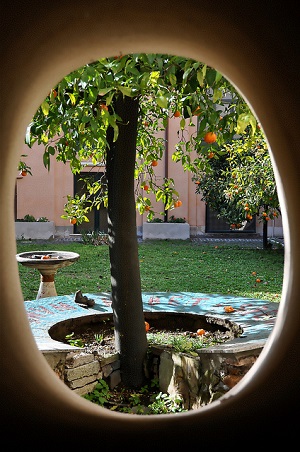As someone who has sailed extensively in Croatia, the islands of the so-called Zadar archipelago are really close to sailing heaven. The archipelago consists of some 300 islands, and it is charaterised by the same haunting beauty that pervades the Kornatis. Dugi Otok (Long Island), north of the Kornati Islands, is the largest island in the archipelago and is home to some 2,500 inhabitants and, and like the Kornatis, there is no natural fresh water supply here. The rocky land undulates through a series of rocky ridges, coves and bays, with the highest point the limestone crest of Vela straža which reaches a height of 338 m (1,110′).
The main settlement on Dugi otok is Sali, which is a thriving fishing port. It also has a reasonable supply of accommodation and a sprinkling of pavement cafes and restaurants. Boat tours leave from Sali in high season for Telašćica, which is frequently cited as one of the most beautiful bays in Croatia. The sweeping bay is usually littered with yachts in summer, but there are no cruise liners, ferries or hotels to clog up the view. As elsewhere on the Dalmatian islands, the main pleasure is relaxing and enjoying the clean seawater and the natural beauty. If you are visiting on a yacht, it is worth heading ashore to walk around to Lake Mir, a lagoon separated from the sea by a narrow band of rocks.
The other inhabited islands of the archipelago – Ugljan, Pašman, Premuda, Olib and Molat – are similar in character, with isolated churches, the occasional monastery, small farms, and, on Ugljan and Pašman (which are linked by a bridge) second homes. Ugljan is one of the greenest islands in the region, its interior smothered in olive groves, vineyards and pine forests. Its rugged western side is sparsely inhabited, as most life centres on the eastern side where you find the island’s villages and best beaches. Its economy still revolves around fishing and wine and olive oil production, but there are still hotels and restaurants catering for visitors. Its peaceful hinterland is criss-crossed with nature and bike trails for all level of cyclists.
Cross the bridge at the island’s southernmost point and you enter Pašman, whose waters are said to be the cleanest in the Adriatic because the current changes direction every six hours. Like Ugljan, the island is covered in rich green vegetation and has a rocky western side that is indented with coves, perfect for the yachtie. The island’s villages dot the eastern side, facing Biograd ( a favourite town of mine ) on the coast across the channel, while up in the hills are a 12th-century Benedictine Monastery and its Franciscan counterpart from the 14th century. Hotels are small and family run, and many of the farmers and fishermen who supply the island’s restaurants also offer private rooms to rent.
So the next time you are planning a trip to Croatia, make certain you set aside time to visit this beautiful part of Croatia – it truly is a paradise!









